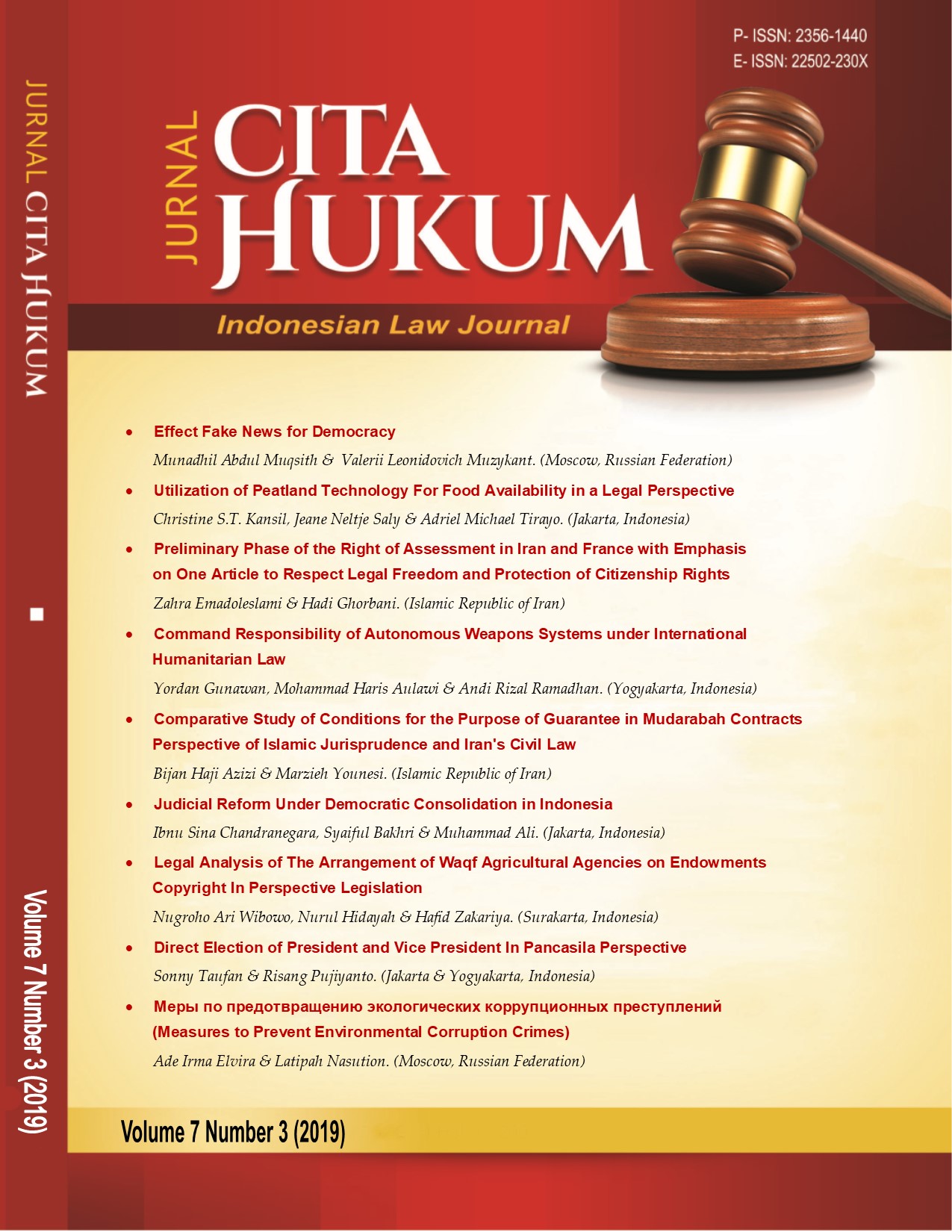Ethnic Mobility and the Formation of Political Identity in Indonesia
DOI:
https://doi.org/10.15408/jch.v11i1.31571Keywords:
Ethnic mobility, Multicultural, Ethnic participation, Political identity, Public welfareAbstract
Indonesia is an archipelagic country that has many tribes and cultures, which make Indonesia a multi-cultural country. There are 5 religions recognized in Indonesia based on the Law of the Republic of Indonesia, namely: Islam, Christianity, Hinduism, Buddhism, and Confucianism. This research is related to ethnic mobility and the formation of political identity in Indonesia which is currently very interesting to be discussed by various researchers around the world, not only in Indonesia. In this study, researcher discuss ethnic mobility and the formation of political identity based on history that has occurred in Indonesia to date. The Indonesian nation Indonesia adheres to the Pancasila ideology so that the national ideology has a major influence on the unity and integrity of the nation. In this study, researcher also examined the ideological values of Pancasila and the nation's unifying motto called Bhinneka Tunggal Ika. This study uses a qualitative descriptive approach in which the researcher conducts a descriptive elaboration of ethnic mobility and the formation of political identity in Indonesia and ethnic participation in political parties in Indonesia. The results of the study show that in the past there were still many Indonesian people who considered themselves local residents and were reluctant to accept other ethnic groups to occupy certain positions in an area, including political positions. The separatist movement that emerged in an area due to the inequality of one region with another, such as the islands of Java and Sumatra, had caused inter-ethnic conflict and many people were anti-Chinese in the 90s. However, currently, Indonesia has provided space for various tribes and religions to be involved in political development in Indonesia based on Pancasila and the 1945 Constitution. Indonesia as a multiethnic country has upheld democratic freedoms for all nations and provided regional autonomy policies for each region in order to improve public welfare.
References
Abdilah U. (2002). Politik Identitas Etnis: pergulatan tanda tanpa identitas. Jakarta: Indonesiatera. 226 p.
Anderson B. (2001). Imagined communities. Reflections on the origins and spread of nationalism. KANON press "Kuchkovo field". 288 p.
Arie S. (2005). Memetakan Lokasi Bagi Politik Identitas Dalam Wacana Politik Poskolonial. Journal Mandatory. Vol. 2 (2). 13-34 p.
Bertrand J. (2004). Nationalism and Ethnic Conflict in Indonesia. New York: Cambridge University Press. 277 p.
Buchari A.S. (2014). Kebangkitan Etnis Menuju Politik Identitas. Jakarta: Yayasan Pustaka Obor Indonesia. 224 p.
Dolzhikova, A. V., & Moseykina, M. N. (2020). Institutions and Educational and Cultural Tools of Migration Policy in Modern Russia. RUDN Journal of Political Science, 22(3), 387–400. https://doi.org/10.22363/2313-1438-2020-22-3-387-400
Erb M. Sulistiyanto P. and Faucher C. (2005). Regionalism in Post-Suharto Indonesia. London and New York: Routledge Curzon. 250 p.
Erman., & Albintani, M. (2018). Politik Identitas dan Negara Bangsa di Riau. Nakhoda: Jurnal Ilmu Pemerintahan, Vol. 17 (29), 1–13.
Farida, I., & Setiawan, R. (2018). Leadership in cope with prostitute in social department of bandar lampung. Saburai international journal of social sciences and development, 2(1), 1. Https://doi.org/10.24967/saburaiijssd.v2i1.325
Haboddin M. (2012). Menguatnya Politik Identitas di Ranah Lokal. Jurnal Studi Pemerintahan. Vol. 3 (1). 116-134 p.
Kirchanov M. (2019). Nationalism and modernization in Indonesia in the XX century. Voronezh: Scientific Book. 250 p.
Koroteeva V.V. (1999). Theories of nationalism in foreign social sciences. Moscow: Russian State University for the Humanities. 140 p.
Kuznetsov, I. I. (2020). Great patriotic war in school literature: features of political socialization of students. Rudn journal of political science, 22(2), 245–261. Https://doi.org/10.22363/2313-1438-2020-22-2-245-261
Lestari D. (2019). Pilkada DKI Jakarta 2017: Dinamika Politik Identitas di Indonesia. Simularca. Vol. 2 (1). 31-37 p.
Mahpudin. (2019). Demokrasi dan Kebangkitan Politik Identitas: Refleksi Perjalanan Demokrasi Indonesia Pasca Orde Baru. International Journal of Demos. Vol. 1 Issue 1. 1-18 p.
Martin Y.V. (2002). Indonesia selected works. St. Petersburg: Aletheia. 248 p.
Marina G., Nikolai N., Nikita B. (2020). Discourses of Oblivion in the Historical Politics of East Asia: Indonesia and Japan. Perm University Bulletin. POLITICAL SCIENCE. Vol. 14 (4). 107-114 p.
Moleong, L. J. (2018). Metodologi Penelitian Kualitatif (Qualitative Research Methodology). Bandung. PT. Rosdakarya youth.
Munauwarah. (2011). Politik Etnis Masyarakat Pendatang Di Kota Palopo Indonesia. Makasar: Universitas Hasanuddin. 88 p.
Nordholt S.H. and Klinken V.G. (2014). Renegotiating Boundaries; Local Politics in Post-Soeharto Indonesia. Jakarta: Yayasan Pusaka Obor Indonesia. 706 p.
Panggabean R.S. (2018). Konflik dan Perdamaian Etnis di Indonesia. Tangerang Selatan: PT Pustaka. 278 p.
Palupi P.W. (2019). Eksploitasi Isu Politik Identitas Terhadap Identitas Politik Pada Generasi Milenial Indonesia di Era 4.0. Journal of Islamic Studies and Humanities. Vol. 4 (2). 187-217 p.
Prayudi P. (2004). Akar Masalah Penyebab Konflik Etnis Dan Alternatif Penyelesaiannya. Jurnal Ketahanan Nasional.Vol. 9 (3). 39-59 p.
Ross, C. (2011). The rise and fall of political parties in russia's regional assemblies. Europe-Asia studies. Vol. 63 (3). 429-448. Https://doi.org/10.1080/09668136.2011.557535.
Sarumpaet M.A.B. (2012). Politik Identitas Etnis Dalam Kontestasi Politik Lokal. Jurnal Kewarganegaraan. Vol. 19 (2). 52-60 p.
Voskresensky A.D. (2008). Conflicts in the East: Ethnic and Confessional. Moscow: Aspect Press. 512 p.











